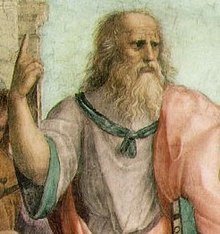Ignorance And Immorality Are Inseparable

When I was in high school, I read Plato’s Republic and remember this odd notion that only philosophers ought to rule. If you want to have a righteous king, then you must have a philosopher king. In Plato’s thought, wisdom is a necessary, though not necessarily sufficient, condition for righteousness. This idea struck me as odd at the time; but after having encountered Hilary Putnam and Sam Harris, I finally get it. Of course, I reject Plato’s anti-democracy sentiment, but that is a different matter.
After encountering Putnam and Harris, I must agree that the fact/value dichotomy is false. Facts and values are interdependent, such that there is a fact-value entanglement. In Salem, they executed witches in order to stop them from harming little kids. Was that the right course of action or the wrong one? Well, that depends upon facts. We value the wellbeing of children, so we ought to protect them. The question is: do “witches” actually have magic powers and use those powers to harm children? Insofar as the Puritans believed that they did, executing witches seemed to be the just course of action. Insofar as we no longer believe such things, we oppose the execution of “witches.” As C. S. Lewis observed, there is no difference of morals or values, but merely different beliefs about the facts.

There are no universal axioms of ethics or categorical imperatives established by divine decree. Whether or not taking someone else's belongings is right or wrong depends entirely upon the circumstances. If I steal Mr. Smith’s hammer simply because it looks nicer than my hammer, I have committed theft and done wrong. If I take a hammer from a child because he keeps injuring himself with it and breaking other people’s things, then I am merely protecting that child and the property of others, so I have done right. Whether taking something that doesn't belong to you is ethically right or wrong is contingent upon facts, concrete circumstances of time and place.
And this takes us back to that idea that wisdom is a prerequisite for righteousness. In order to make the right choice in any decision, one must know all the facts. The more one knows about the relevant facts, the more one is capable of making right decisions. Certain issues, especially issues related to politics and government policy, are complex and require greater knowledge in order to make the correct decision. If the role of government is to maximize human wellbeing, then we must determine what policies and actions tend to maximize human wellbeing. All policy then must not only be based on abstract moralizing but also upon collection of real-world data and analyzing the probable consequences of potential policies.
This rejection of the fact/value dichotomy and acknowledgement of a fact-value entanglement indicates that intelligence and morality, through not identical, are entangled. The corollary of this is that ignorance and immorality are also entangled, so that it is impossible to be entirely ethical while remaining in a state of ignorance. Let’s go back to the issue of politics. Should we impose a minimum wage and tax the wealthy at a high rate? Well, that depends on the results of those policies. If it happens to be the case that a minimum wage increases unemployment and less taxes on the wealthy leads to higher wages and a better economy, then a conservative economic policy would be the right course of action. If, on the other hand, the absence of a minimum wage leads to the immiseration of the proletariat, making the masses totally miserable, and imposing a high tax on the wealthy makes wages rise, then a liberal economic policy would be preferable. Which policy is ethical depends upon reality, not upon abstractions.
The impulse to conservatism and right-libertarianism appears to be the false belief in categorical imperatives, "the unconditional moral principle that one's behaviour should accord with universalizable maxims which respect persons as ends in themselves; the obligation to do one's duty for its own sake and not in pursuit of further ends."(Dictionary.com) In reality, all moral imperatives are actually hypothetical imperatives, "conditional rule[s] of action, concerned with means and ends rather than with duty for its ownsake."(Dictionary.com) The underlying conviction of all conservatism is that ethics boils down to universal rules, usually determined by divine decree but sometimes deriving from natural law, that we are duty bound to obey. One implication is that theft is inherently wrong in itself, either inexplicably or else due to divine command. Taxation is wrong because it is theft, and theft is always wrong, regardless of circumstances. The conservative may say that taxation is necessary and therefore understandable, but a tax increase beyond what is absolutely necessary for national defense (read: "total world domination" because conservatives are hypocritical assholes) is absolutely unacceptable. The arch-conservative becomes an "anarcho-capitalist" and rejects taxation altogether. It does not matter if emissions taxes are proven to be the only viable way to prevent climate catastrophe because taxation is theft which is wrong in the nature of the case as a categorical imperative, regardless of whether the results of taxation happen to be good or bad. Conservatism is based on the myth of categorical imperatives. In reality, though, even the most concrete example of a categorical imperative, the religious claim that God's commands determine what is ethically right or wrong, is actually just a hypothetical imperative in disguise. You either ought to obey God's commands because you love God and desire to please Him or because you fear God and don't want to incur his wrath. Either way, the imperative is not absolute but contingent upon relevant facts. Is it true that God exists and will punish disobedience? If that claim is false, then there is no reason that you ought to obey. Even the religious approach reduces to a hypothetical imperative. All right-wing ideology is based on a lie.
I've been missing a lot of time and your writings are still amazing, I'm glad to be back. I've always acted just when i'm sure that I really must, actually for not being open minded and not following reason, close people have got harmed. Ethic (in any sense), is invented only for the optimal function of a society, it doesn't matter how small this one is. Moral is the way we act and behave regarding to the ethic we "respect" but there's always some situation that take us to dilemmas where only the circumstances leave the choice to us. upvote and nice reading!
You missed a very important Hayekian point in your analysis: human beings will always be ignorant about the functioning of a complex society. The same for governments. Morality evolved through a process of social selection, and it's purpose is to coordinate the actions of members of society so that they can become predictable to the other members. Moral rules evolved as a consequence of the ignorance of human beings to most of the facts in their social environment.
You seem to be advocating a model of governance based on utilitarianism. You are assuming a priori that governments CAN make good decisions if they know the facts; however, they can never know all the relevant facts that can affect the consequences of their policies. Moral rules come into play here; they make decisions more predictable so that members of the society can adjust their actions accordingly. Therefore, it is in fact better for rulers to take decisions based on established moral rules, than relying on their- necessarily flawed- judgements of each particular situation.
Plato said that the government likes democracy because it is very confusing and covers the less ethical facts of politicians... is it true?
Personally, I think Plato was a complete moron and a fascist. I'm pro-democracy.
i agree!! but a good democracy need of the good leader....
If you have a good democracy, leaders have no arbitrary power and it doesn't matter who holds office.
The classic definition of liberalism is today called Christian conservatism. The modern definition of social liberalism is what was known as communism. The ideology of the Left is being taught to America’s children and pounded into them through the media propaganda arm of the Democrat Party. They follow ignorantly because they do not know better and this is the cause of America’s decline.
With all due respect, you have absolutely no idea what you are talking about. Classical liberals weren't as a rule either Christian or conservative. Adam Smith, David Ricardo, et al would align more with modern geo-libertarianism. Classical conservatism was an outgrowth of Thomism NOT classical liberalism, and it culminates in Edmund Burke and Russell Kirk, and is fundamentally rooted in old catholicism...but modern conservatism often rejects the religious basis of conservatism. Social liberalism is not communism. That statement just demonstrates your absolute ignorance of socialist and communist theory altogether. Communism advocates the abolition of money altogether. How is that even remotely analogous to modern liberalism's support for progressive taxation? And socialism advocates worker-ownership of the means of production and worker-managed co-operatives, et al. Does the Democratic party advocate either worker-managed co-operatives or the abolition of money? No, so the Democrats are neither socialist nor communist.
so sad news it is
This is super good.